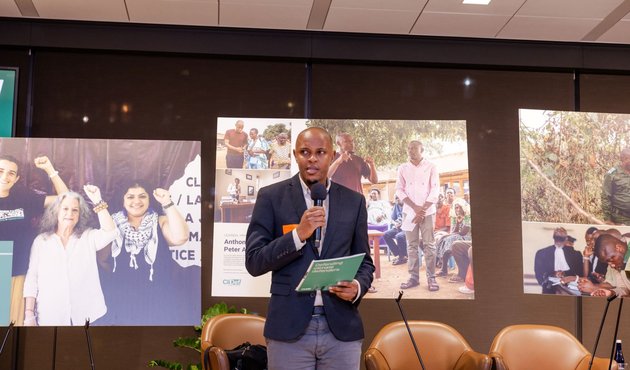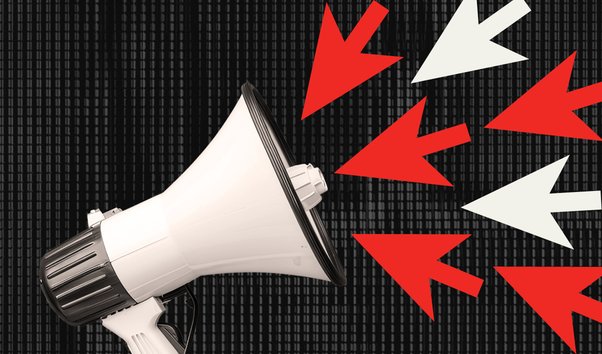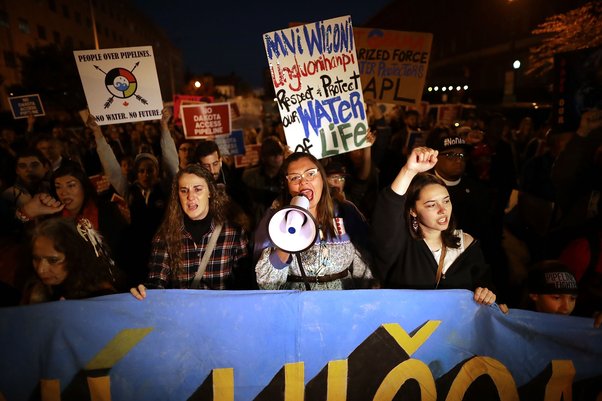The climate crisis is already hitting vulnerable communities across the globe, as we heard at Climate Week NYC. Here, we sum up the urgent calls for action from land and environmental defenders, Indigenous Peoples and journalists that defined the week
Last week, civil society, governments and businesses came together at Climate Week NYC in conferences, panels, working groups and bilateral meetings to collaborate for climate action.
Taking advantage of this moment of unity, which centred on the theme “It’s Time”, Global Witness added our voice to the call for change.
Here are our five takeaways from the week:
The climate crisis doesn’t stop at the border – action must be global
Climate Week NYC is a global convening with activists, NGOs, businesses and government leaders joining from all around the world.
Global Witness was proud to support a coalition of over 17 partners – many of whom are Indigenous leaders – from Global Majority countries in actively participating in Climate Week NYC.
Open to all, there is a real opportunity at Climate Week NYC to convene stakeholders from across the climate movement and to build momentum, as long as we don’t fall into siloed approaches that only speak to those whose perspectives most align with our own.
Business and world leaders must collaborate with defenders for effective climate action
We witnessed too much evidence of siloed conversations at Climate Week NYC. Particularly evident was how rarely business leaders and activists – or governments and activists – were in conversation with each other.
At Global Witness we know how crucial land and environmental defenders – and other climate activists – are to climate solutions. Throughout the week, we supported spaces where defenders, businesses and governments could engage with each other.
We hosted a panel discussion with Joan Carling (Indigenous Peoples Rights International), Don Clemente Flores (Indigenous Leader, Cuenca de las Salinas Grandes y Laguna de Guayatayoc, Argentina), Michael H Posner (NYC Stern School of Business and Human Rights), Kayla Winarsky McKenzie (BSR) and Yessenia Funes (Atmos) as moderator.
Drawing from their own experience and expertise, panelists explored how to embed sustainable practices into the renewable energy supply chain, with a specific emphasis on the ethical sourcing of transition minerals.
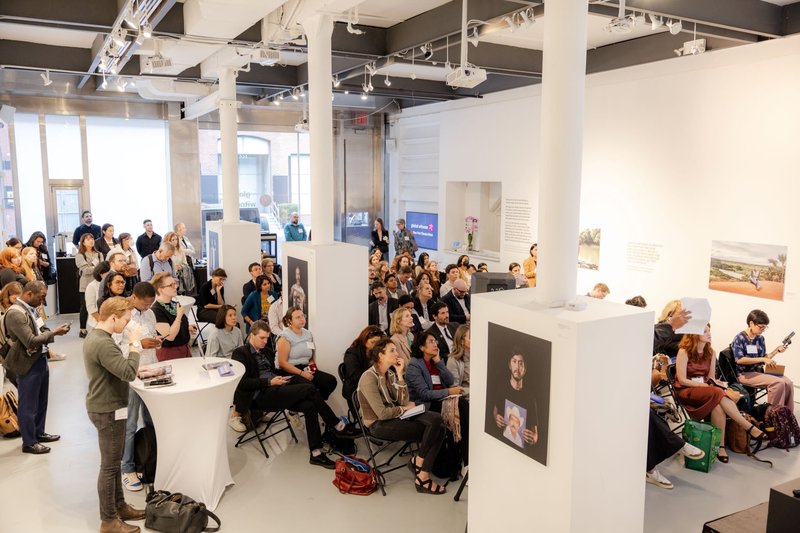
After the panel, attendees experienced a multimedia exhibit of defenders’ stories from around the world.
And as part of a broader coalition, we helped to organize a convening of defenders, governments, UN representatives and civil society in support of LEAD – an initiative that aims to ensure environmental defenders are at the negotiating table and their voices are heard when decisions about climate policies are made.
Equally critically, LEAD will campaign to make sure defenders are free from the abuse, intimidation and violence they so often face.
This work is preparing for a more effective and inclusive Biodiversity COP16 this year and COP30 next year.
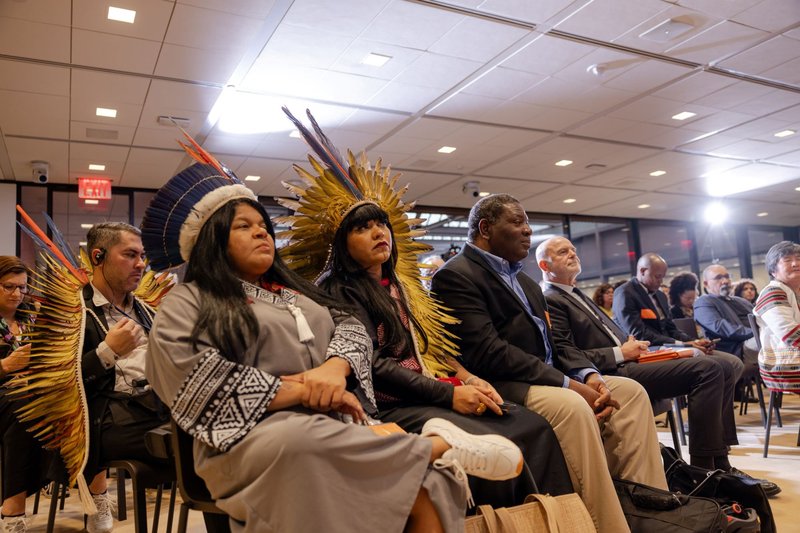
Effective communication about climate is still a way off
During Climate Week NYC, we saw how too often an alphabet soup of acronyms, pet-language, obscure terminology and pedantry stymy collaboration between stakeholders in the climate movement.
To work more effectively and to engage a broader audience of concerned citizens around the world, we have to find a way to communicate climate issues more simply and with more humanity. We can’t sacrifice awareness and understanding at the altar of precision.
Nowhere is this issue more evident than in the media. Global Witness hosted a panel discussion on what fair and balanced journalism looks like in a one-sided climate crisis.
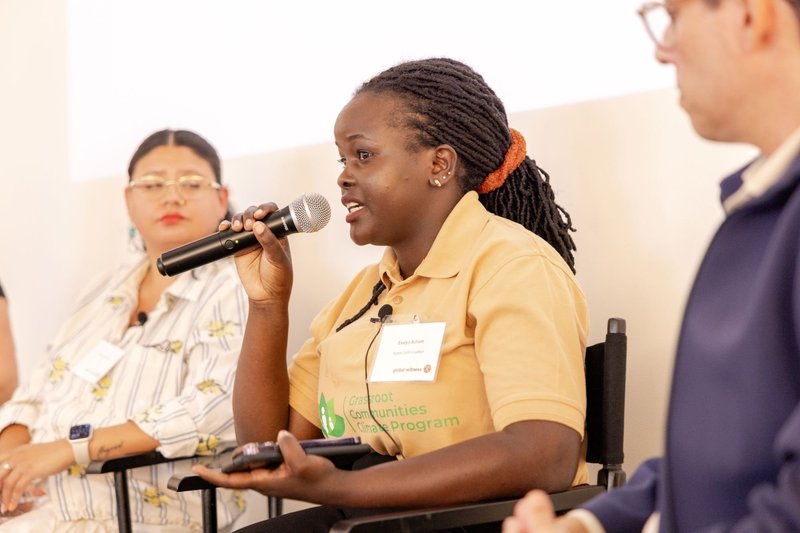
Evelyn Acham (Agape Earth Coalition), Yessenia Funes (Atmos), Marcel Gomes (Repórter Brasil) and Gaby Darbyshire (Dangerous Ventures) as moderator shared their experiences with a media landscape that is facing increasing financial pressures and the constant menace of disinformation.
While individual journalists – and the non-profits and activists that engage with them – can do a lot to communicate the broad effects of climate change and its causes in a way that is memorable, they need more resources.
More specifically, they need resources to invest in the power of citizen journalists, have climate desks in newsrooms rather than lone climate reporters, and to ensure that the stories of marginalized and disproportionately affected communities in overlooked parts of the world are told.
Climate change’s impacts are intersectional – the solutions must be too
Climate Week NYC highlighted how climate change's effects are intersectional. It exacerbates poverty, gender and other social inequities, and magnifies global power imbalances.
We need to break down the artificial and often counterproductive barriers that we impose upon non-profits and global initiatives and instead view the interconnectedness of work aimed at impacting the planet and humanity.
Ultimately, we’re working towards a shared goal (a goal that is central to Global Witness): a just, sustainable and vibrant future for the planet and all of us.
At Global Witness, we’ve seen how focusing on impacts and putting a human face on complex issues takes climate from the abstract to the personal.
Highlighting the experiences of communities pushed off their land by climate-destroying corporate interests or profiling the connection between fossil fuel industry power and war, extreme weather or energy inequity brings the climate emergency into sharp relief.
Exposing the environmental impacts of the status quo could help to motivate policymakers to shift course and put an end to extractive practices.
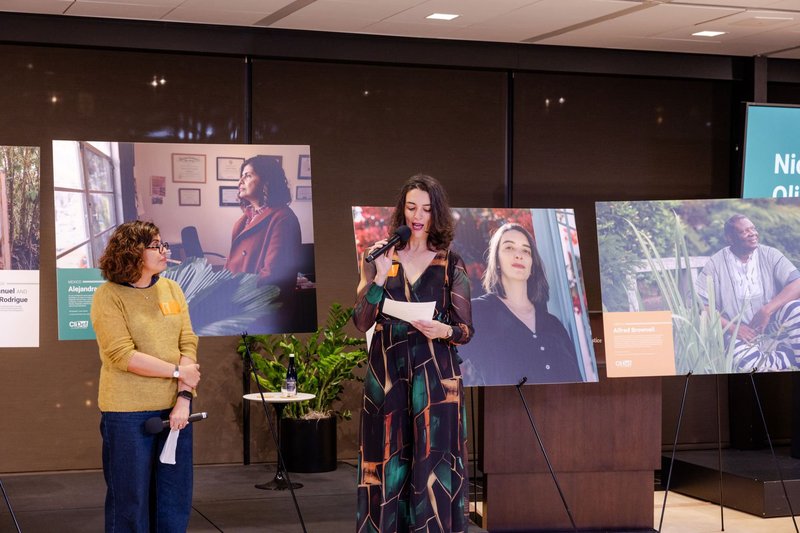
Climate change is in fact an emergency, and we all must take urgent and decisive action. It’s time
As we gathered in New York, the Amazon forest burned, with smoke clogging the air for millions of Brazilians.
Just a few hours south, Hurricane Helene devastated the American southwest with immense flooding, killing at least 130 people. And at least 365 people have died from extreme heat in Texas this year.
The climate crisis's catastrophic impacts are felt in every corner of the world right now. There isn’t time for never-ending deliberation.
We cannot allow vested interests in the status quo to stop change – the sort of change that would keep fossil fuels in the ground, halt the financing of deforestation, enshrine a just transition and support defenders’ crucial work.
There is incredible power in this movement and bold change is possible. The time is now.
Here are a few ideas for actions you can take today:
- Amplify defender and Indigenous voices on social media, including on Global Witness's LinkedIn, Instagram and X.
- Support the movement financially. Consider making a gift to Global Witness.
- For those in the US, write to your Senators and Representatives in support of the US Polluter Pay Climate Fund Act, which would require the biggest fossil fuel companies to pay into a $1 trillion fund with their contributions based on a percentage of their global emissions.
